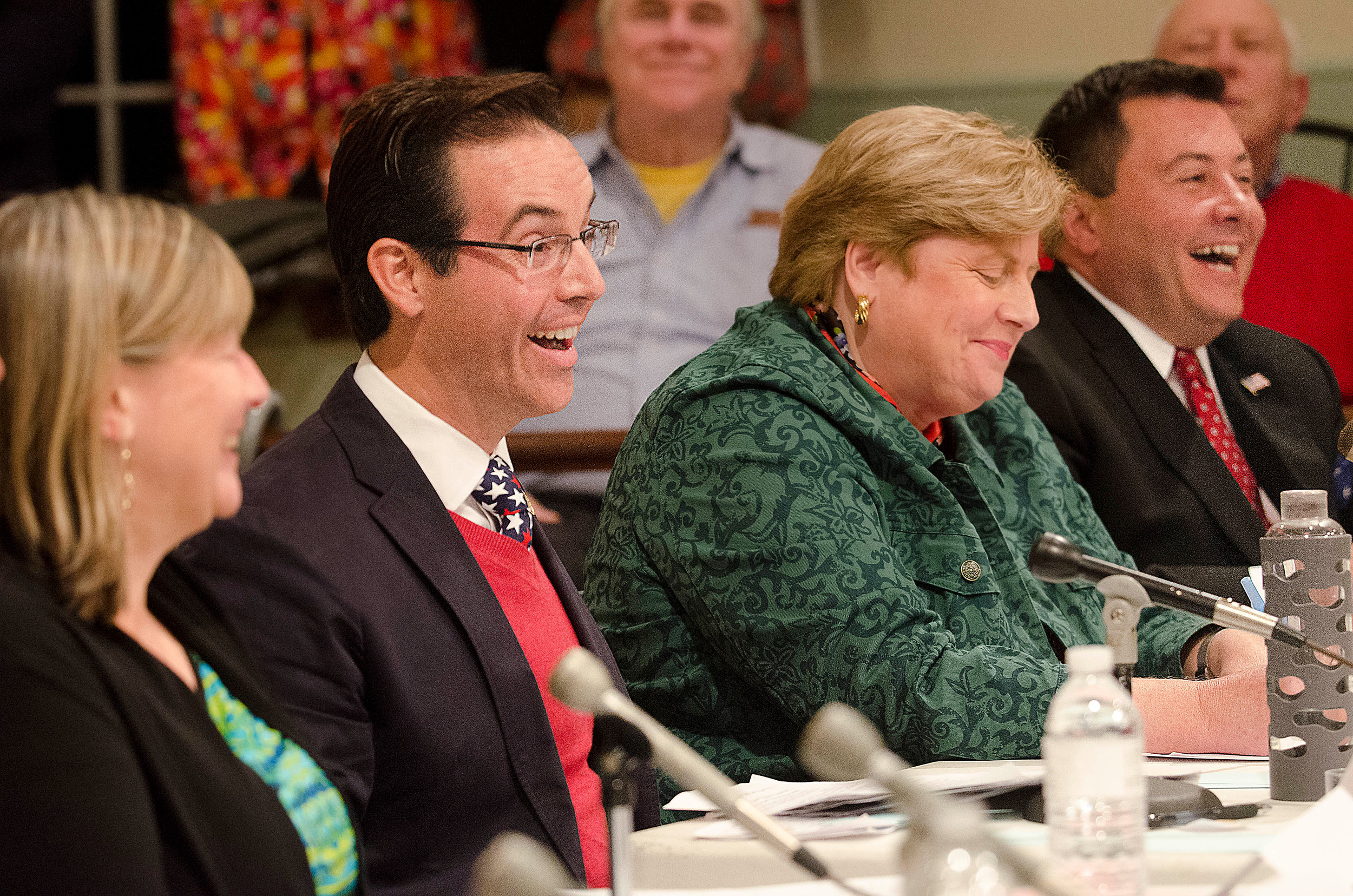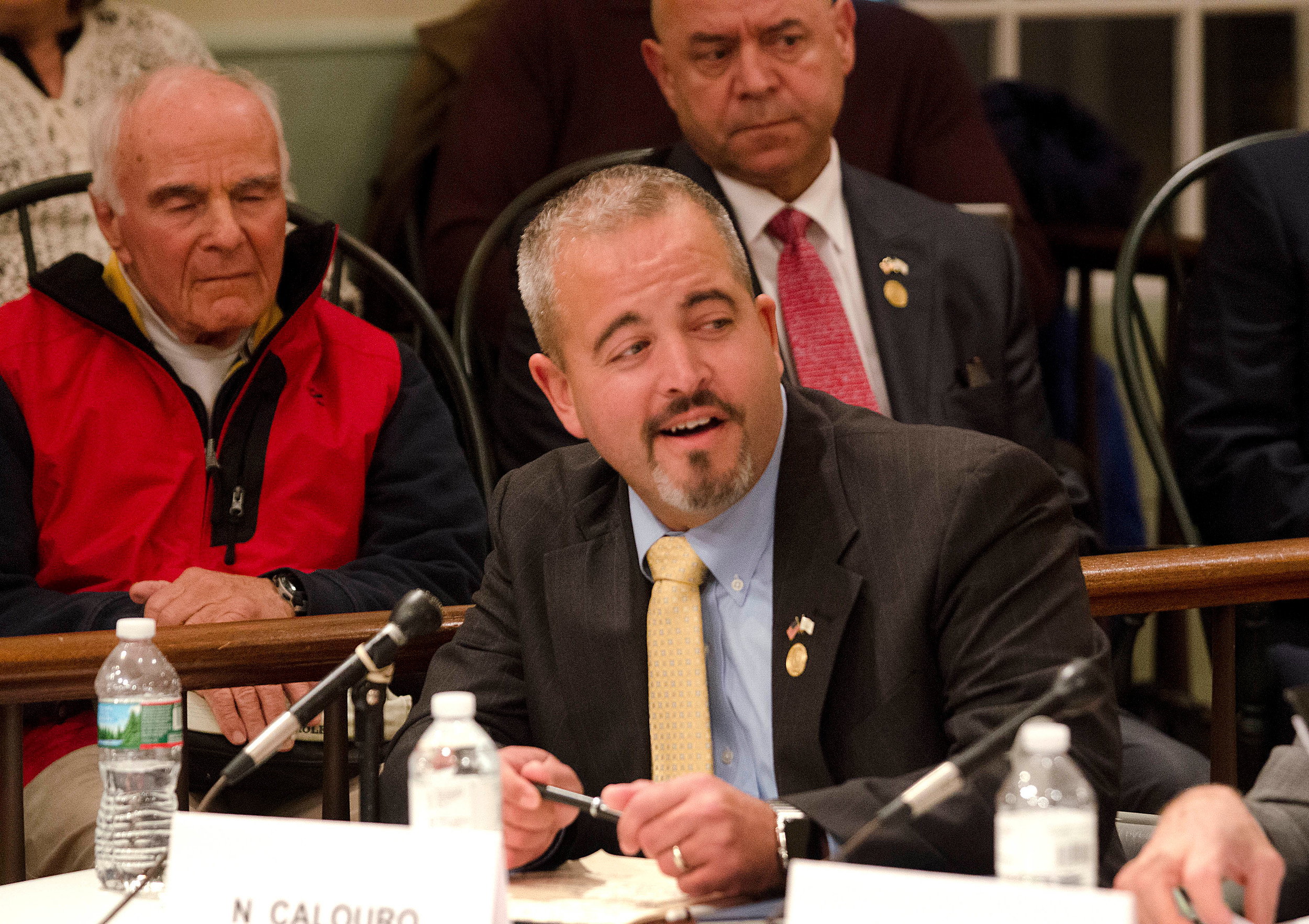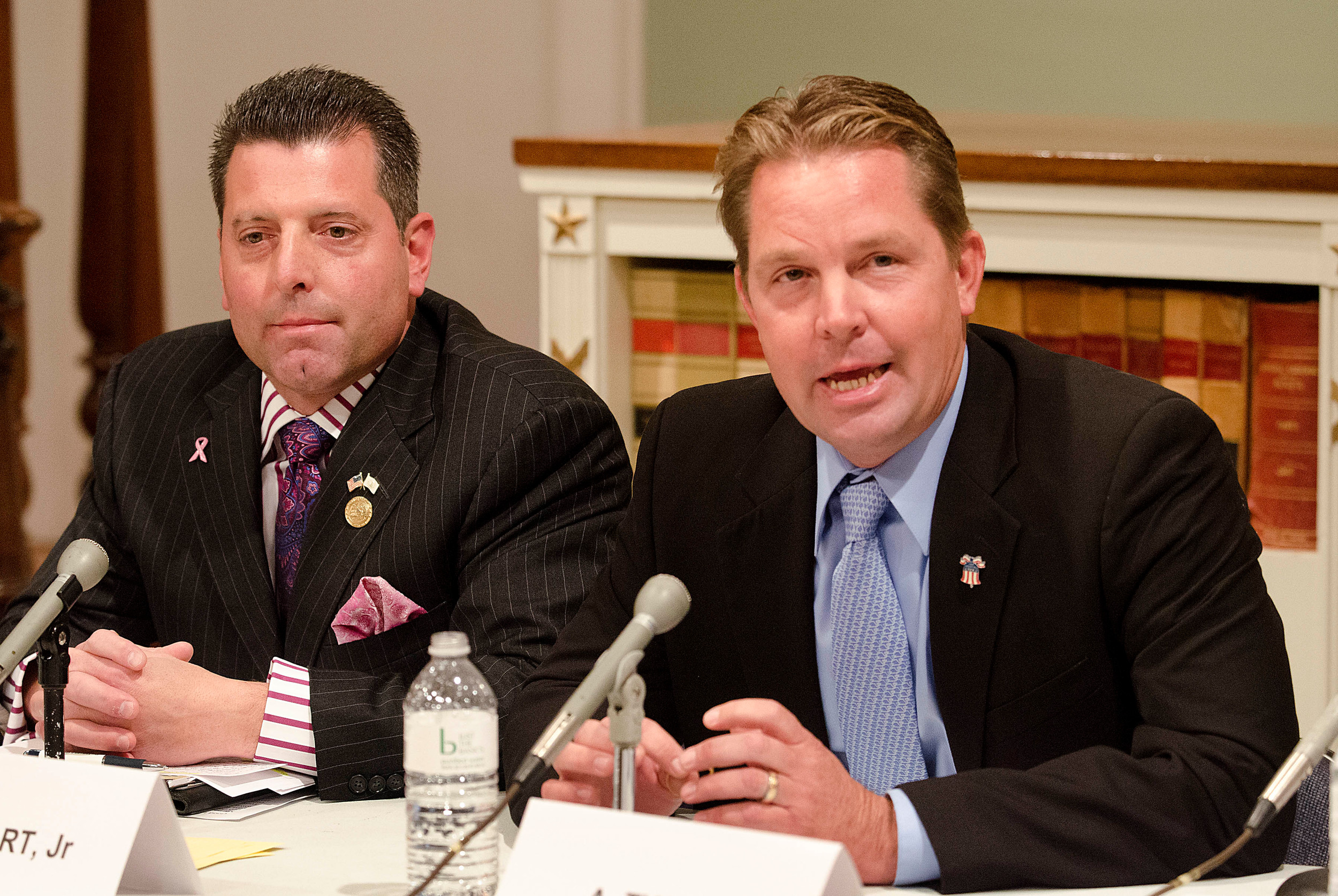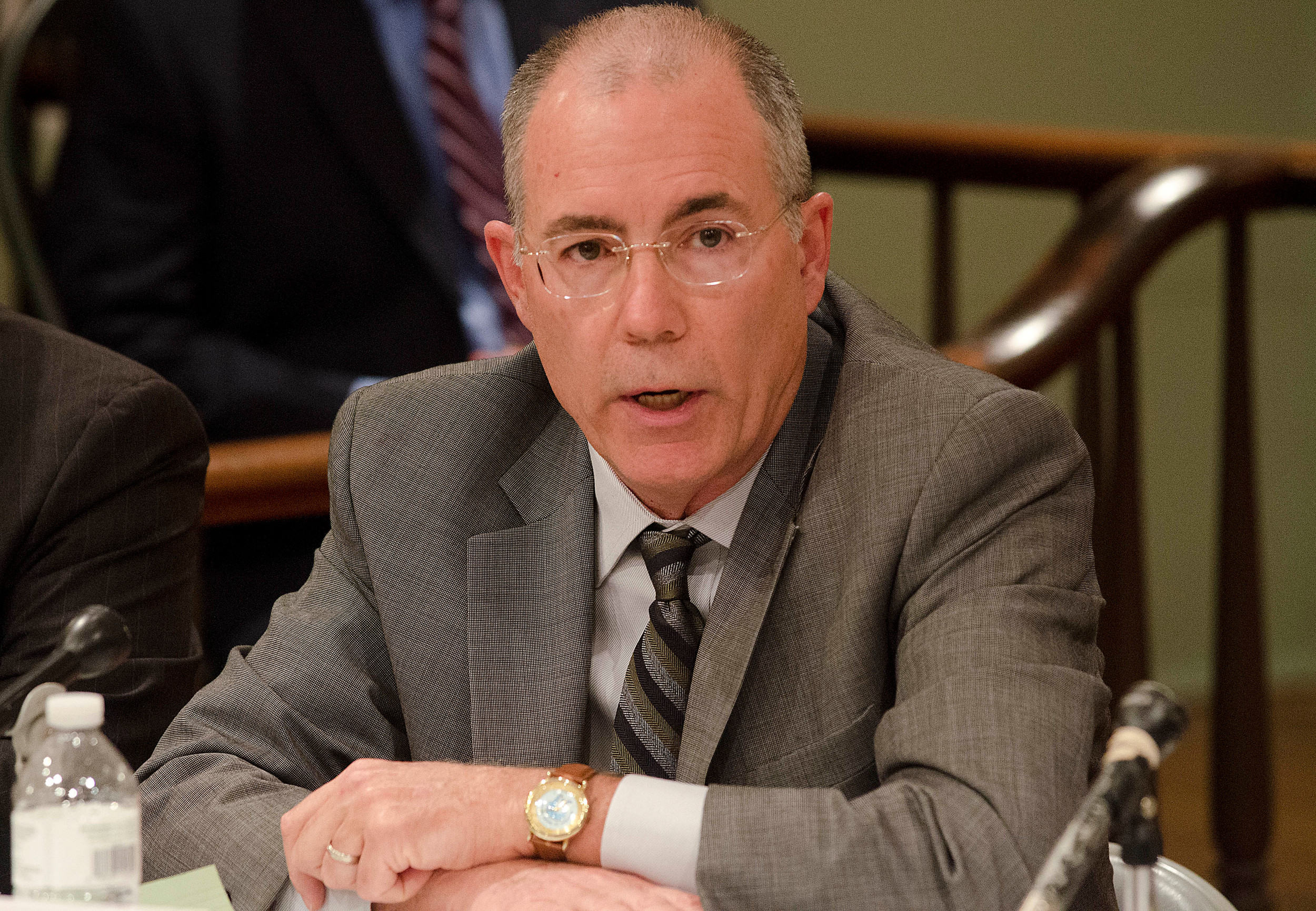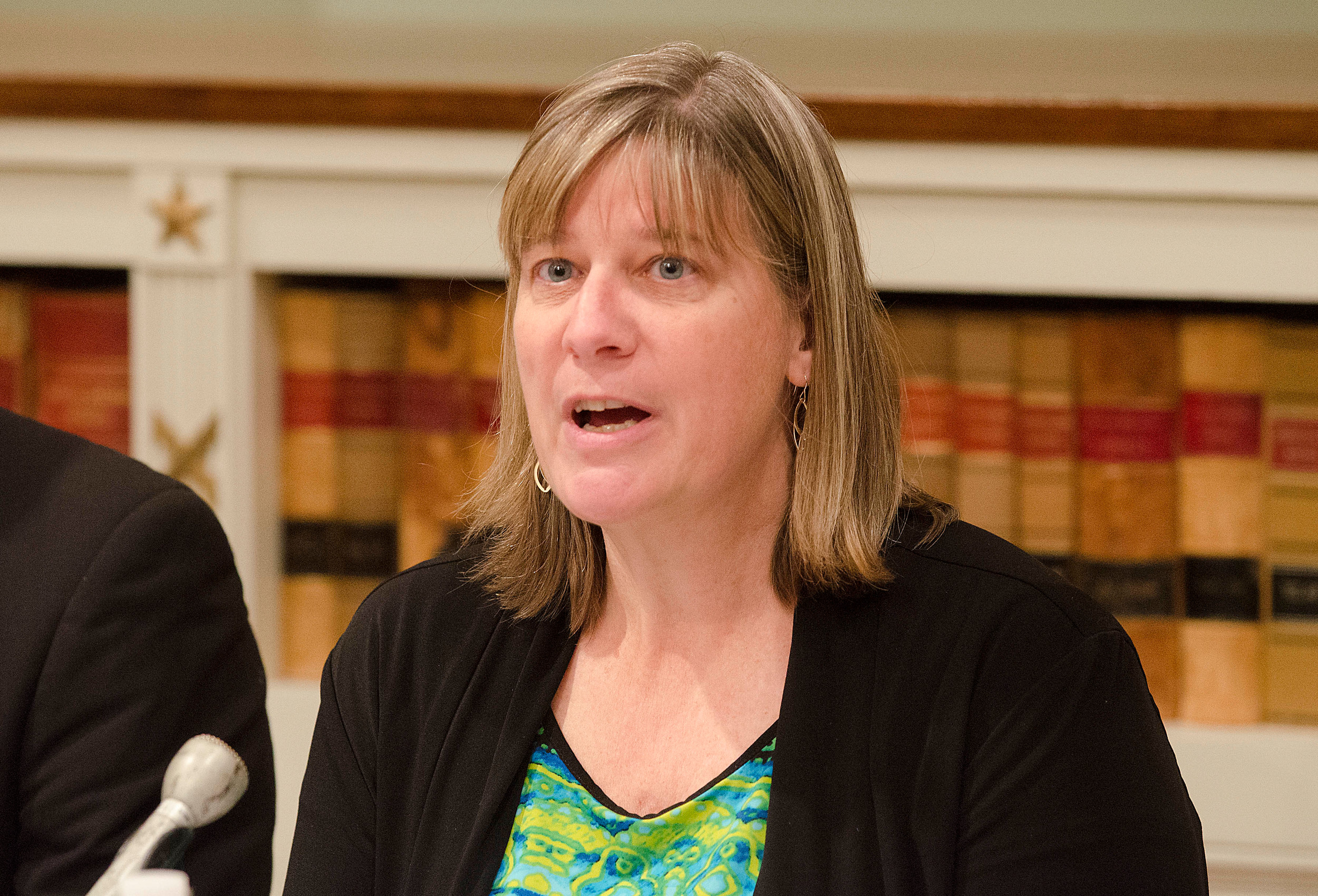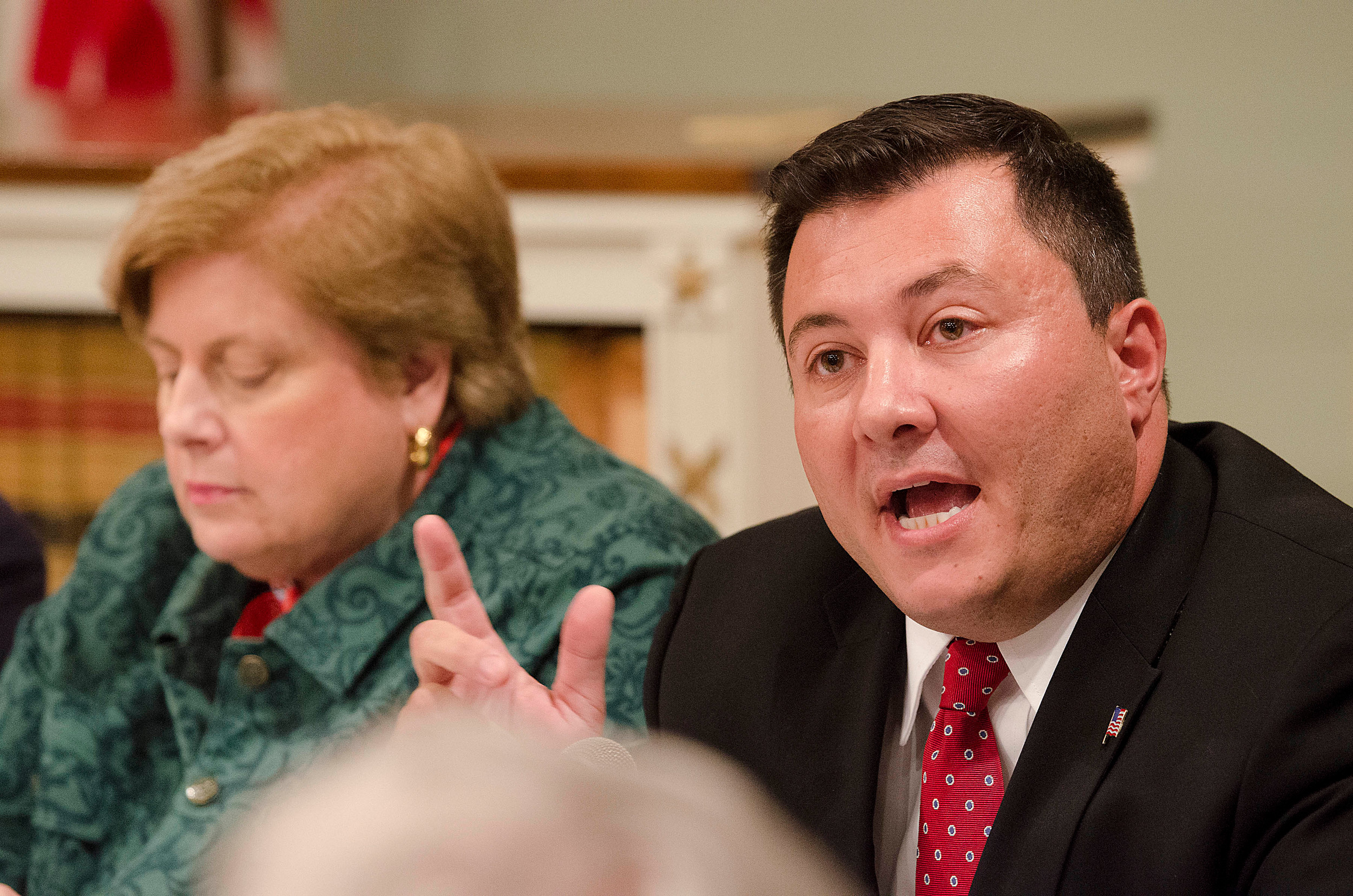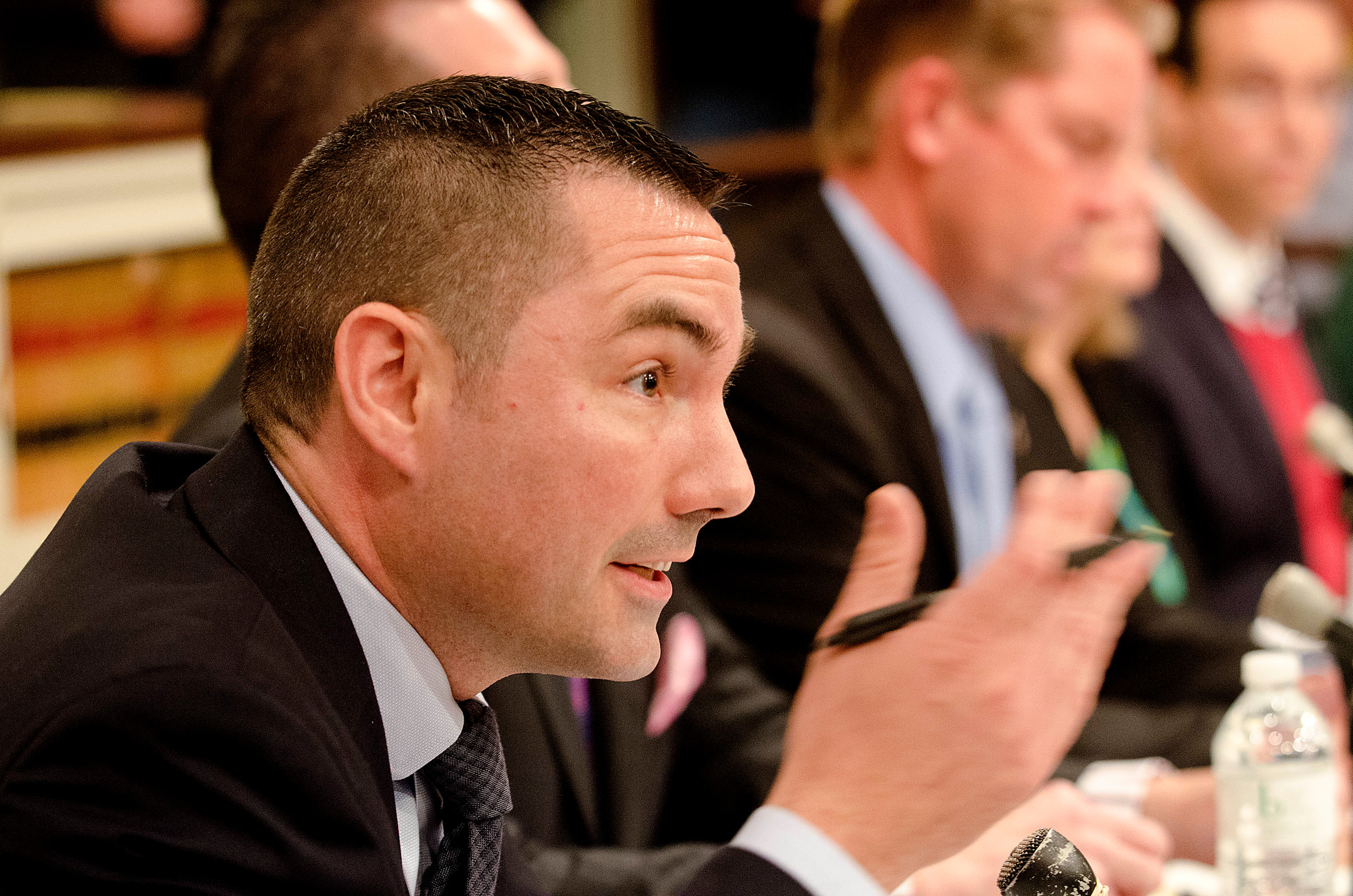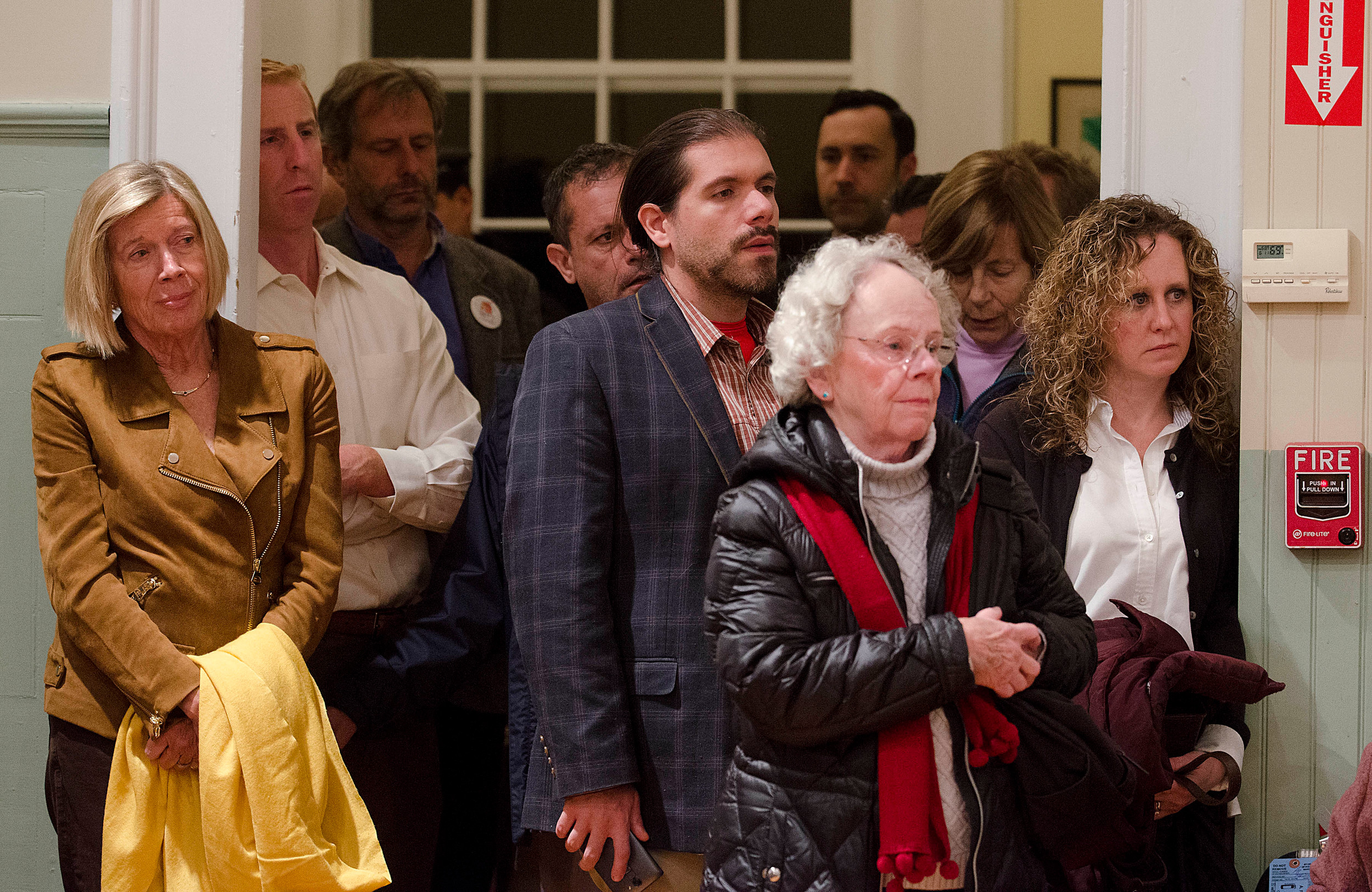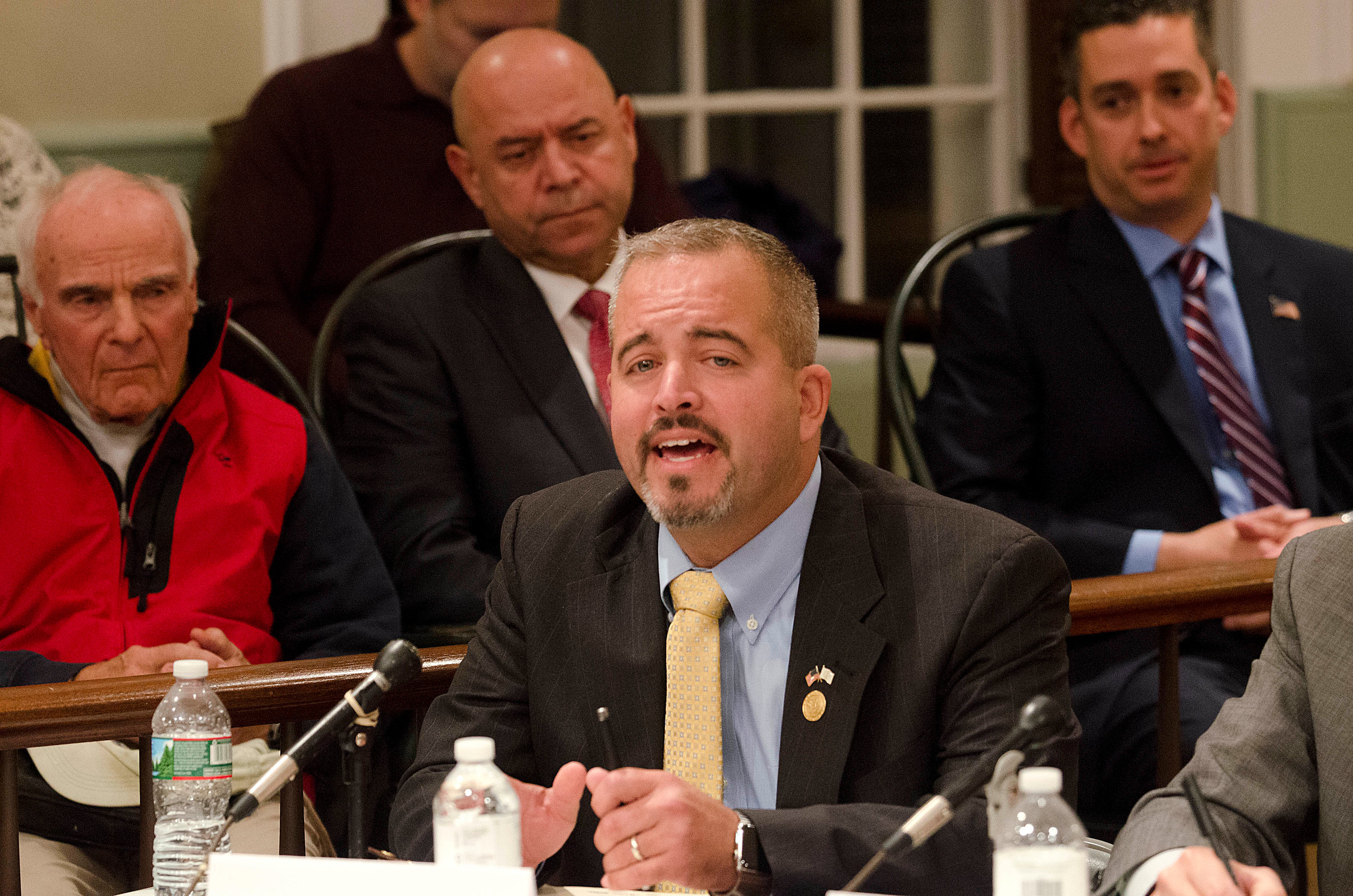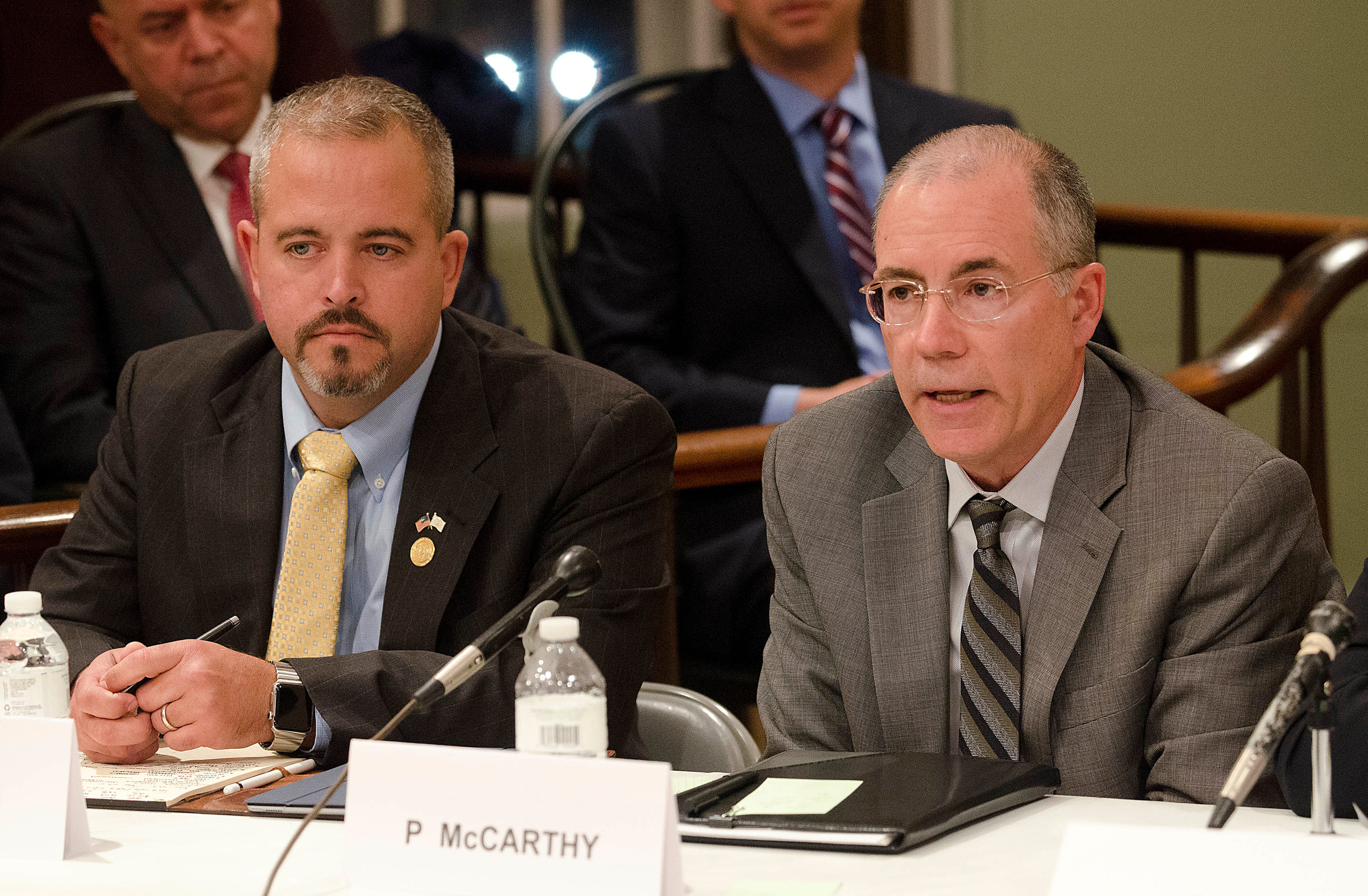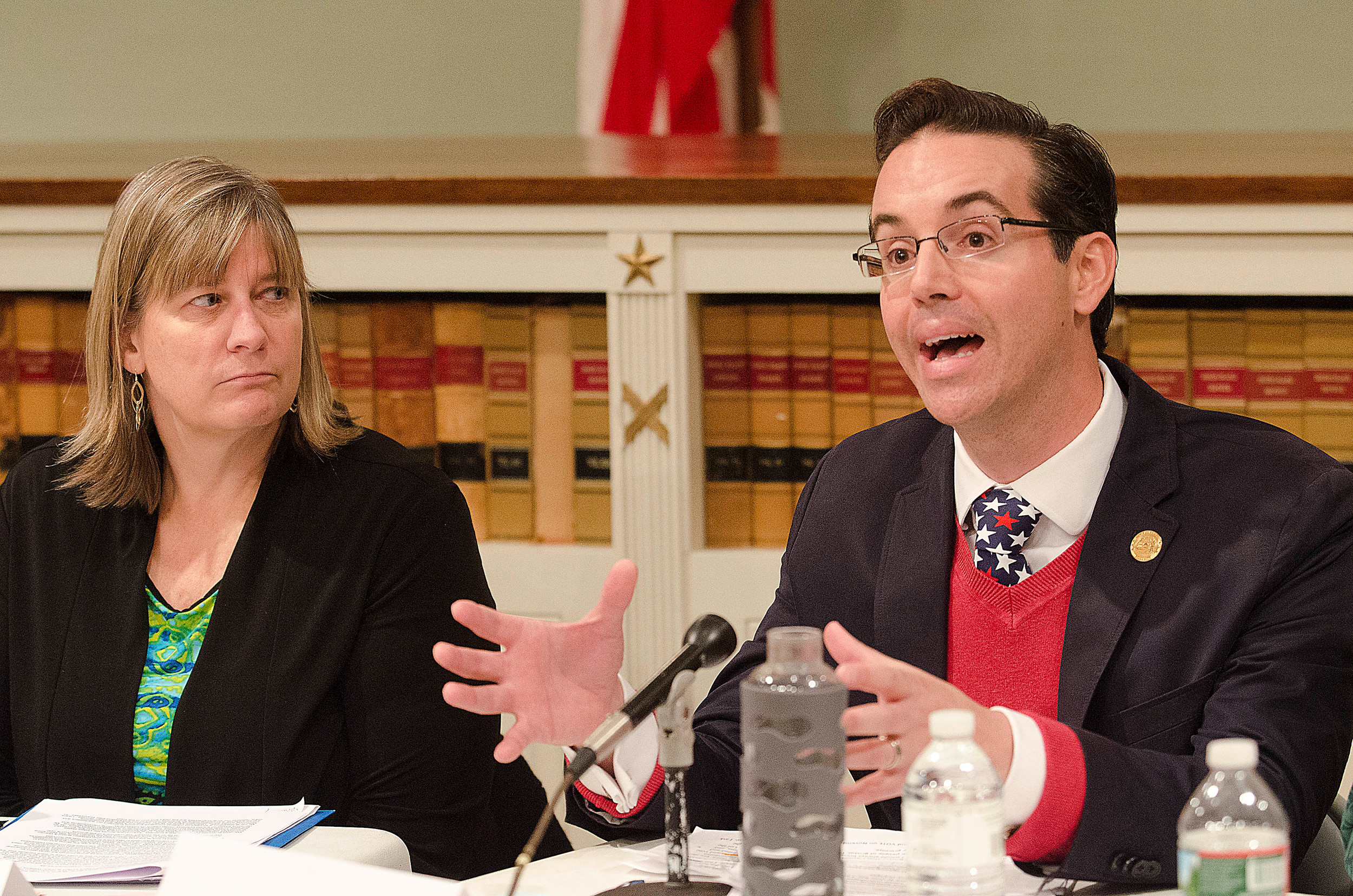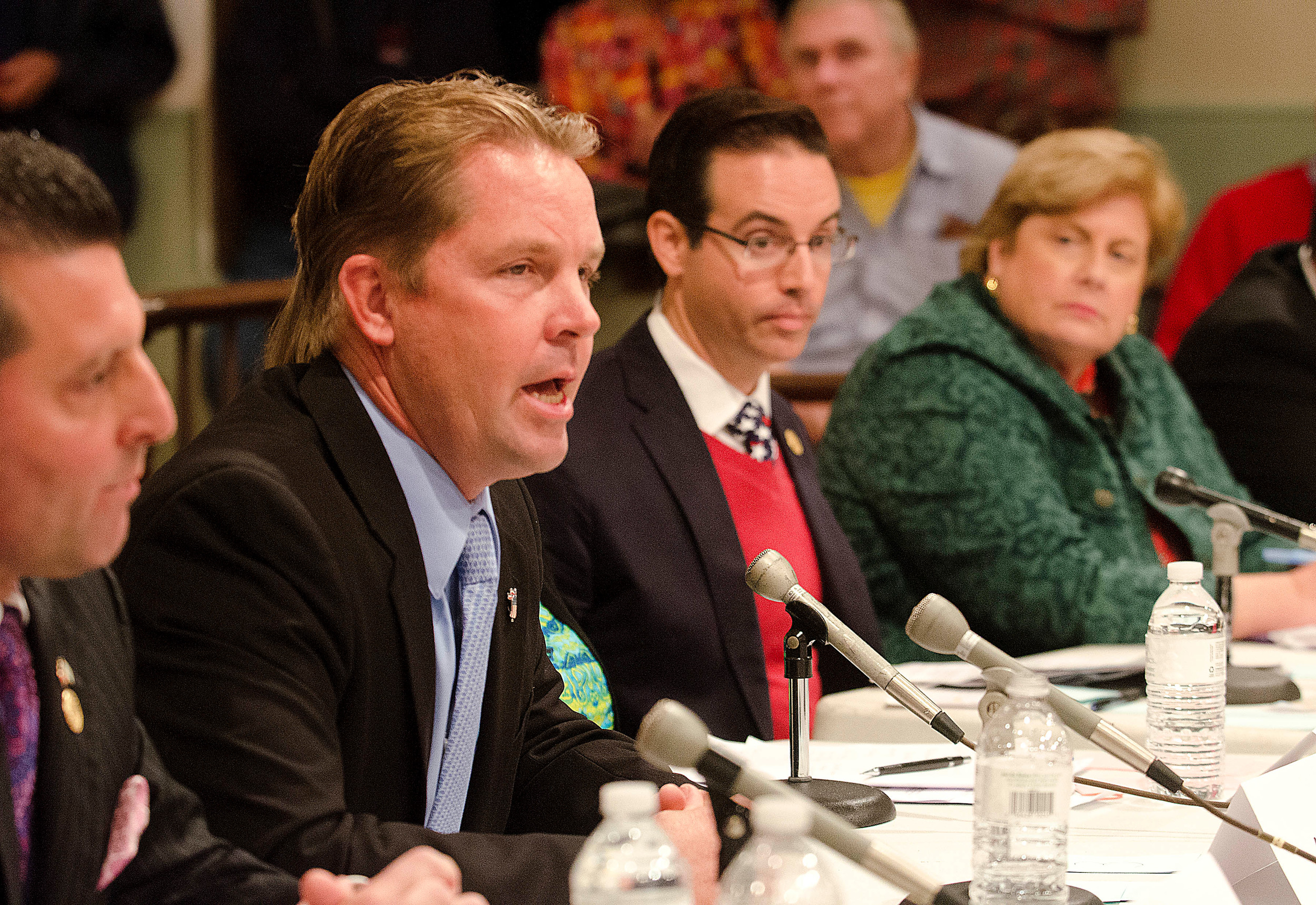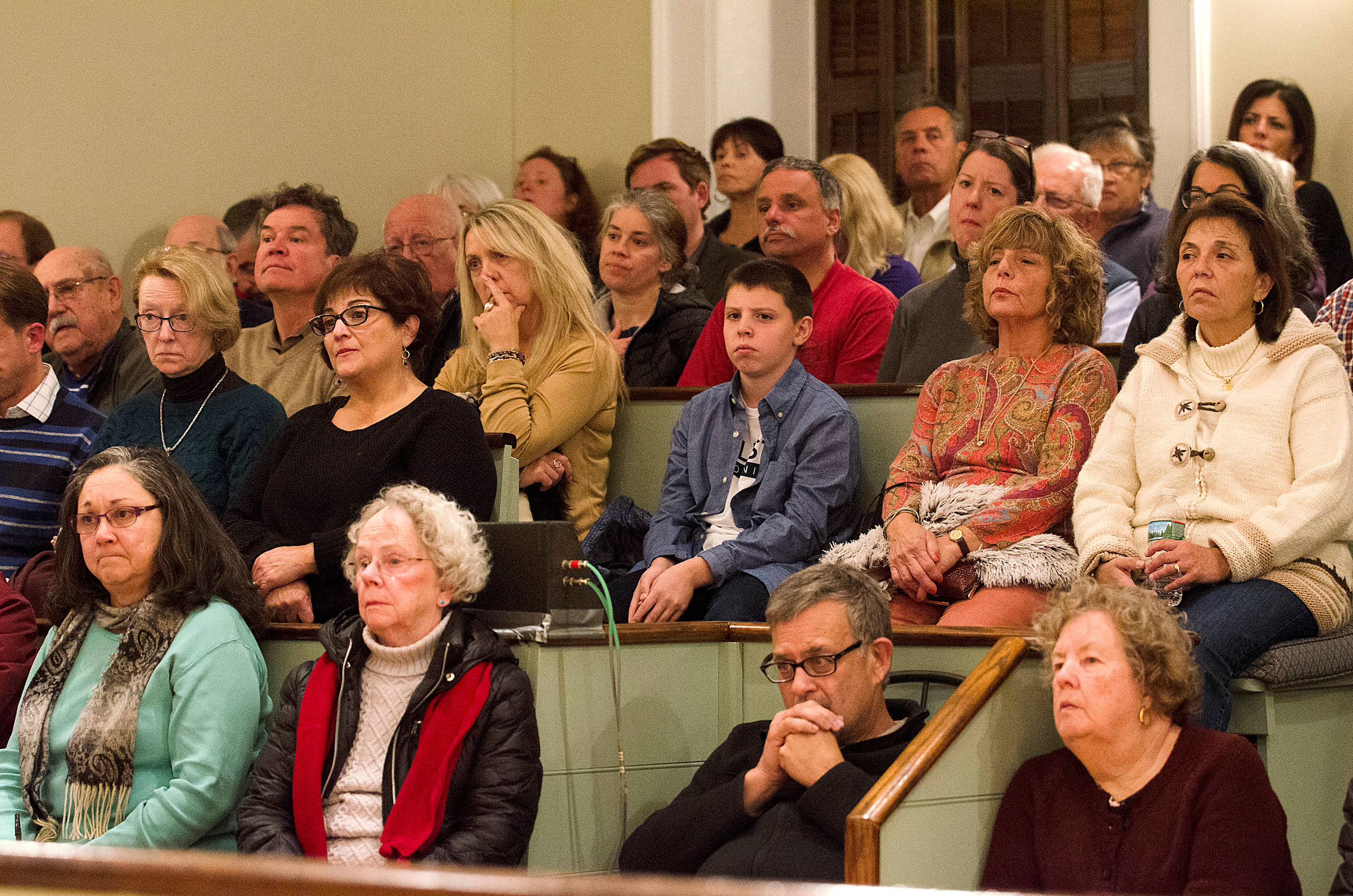Taxes, roads, schools, tourists: Bristol Council candidates debate key issues
Council candidates weigh in on top issues impacting Bristol ahead of election
About 150 people packed the Old State House chambers Tuesday night to hear nine Town Council candidates and two Town Administrator candidates state their cases for office.
The nine council …
This item is available in full to subscribers.
Please log in to continue |
Register to post eventsIf you'd like to post an event to our calendar, you can create a free account by clicking here. Note that free accounts do not have access to our subscriber-only content. |
Day pass subscribers
Are you a day pass subscriber who needs to log in? Click here to continue.
Taxes, roads, schools, tourists: Bristol Council candidates debate key issues
Council candidates weigh in on top issues impacting Bristol ahead of election
About 150 people packed the Old State House chambers Tuesday night to hear nine Town Council candidates and two Town Administrator candidates state their cases for office.
The nine council candidates — five Democrats (Nathan Calouro, Timothy Sweeney, Edward Stuart, Aaron Ley, Andy Tyska), three Republicans (Mary Parella, Marco Capaldi, Patrick McCarthy) and independent Ann Gardner — are vying for one of five seats on the council. Four seats are currently held by Parella, Calouro, Sweeney and Stuart. Councilman Halsey Herreshoff decided not to run this year after a decades-long career in public service.
The Town Council candidates kicked off the evening, introducing themselves with brief opening statements before answering questions posed by audience members and relayed by moderator Scott Pickering, general manager of East Bay Newspapers. Each question was asked of one candidate, and the next candidate offered a response, before Mr. Pickering moved on to the next question. Candidates each had nine wild cards, allowing them to jump in on any topic they chose throughout the forum.
The questions and the candidates’ responses follow.
What do you say to someone who complains about their prop tax bill?
- Nathan Calouro: “I agree, how about that?,” Calouro said, going on to note the tax increase would have been nothing if the town didn’t have to pay more to the regional school district after a recent court ruling. “Our taxes went up to deal with $2.8 million of additional costs to the school district. We need to do something about that, and we are. The taxes are going up because we complied with his decision. We had to.”
- Patrick McCarthy: “In 2013 the total tax levy was $36 million. That levy is now $42 million, an increase of 17 percent. That’s unsustainable.” McCarthy proposed implementing a homestead exemption, which would exempt the first $25,000 of home value from property taxes. He also proposed converting the old landfill into an energy-producing solar farm, and investing in marina expansion, “which would yield long-term revenues from the 110 people on the waiting list.”
- Calouro: “The tax increase was a requirement. Before that, we had another increase to the school district. This decisions were made because they were the right decisions.”
- Tim Sweeney: When you propose a homestead exemption, it would lower your property value, so the town would have to make that up with the tax rate. “We need to continue the services we have in town, and we need to make up that revenue somewhere,” he said.
- Edward Stuart: We never want to raise taxes, but we are obligated to maintain services. We streamline the budget; all of us collaborate on the budget. We do our due diligence.
- Mary Parella: We are very diligent in going through the budget with a fine-toothed comb. We have done our very best to maintain the services everyone expects. The $2 million increase this year was a ruling of the court. There is no bigger issue facing Bristol. That was not just a one-time shot. That is something that will go on every year. We have done the best we can by appealing that decision.
- Marco Capaldi: Revenue you have doesn’t matter unless you use it wisely, Capaldi said noting that grant money for signage downtown still has not been utilized after a contractor backed out. “That is not good management,” he said.
- Ann Gardner: We need to run our town like we run a business. Long-term planning is crucial. We need to make decision along the way, and we need to continually course correct. “My strengths are streamlining processes,” she said.
What can be one to address the school funding issue that is driving up taxes?
- McCarthy: Perhaps the time has come for the two towns to come together as a separate schools tax district, like some fire districts across the state.
- Aaron Ley: Avoid some of this litigation in the first place. There are multiple opportunities for people to come together before litigation occurs, and cooperate. Ley suggested working with the state to try and reduce Bristol’s burden.
- Parella: Some of these issues started when the regional bonus money was cut by $800,000 a year. Bristol has never sued anyone. The school district has been sued by our partner community and we were brought in on that because we had to defend ourselves and defend our schools. We had to defend because our job is to represent the Bristol taxpayers. We can’t have the increases from here to eternity without appealing that.
- Stuart: Given the amount of money involved and our stance, we have reached out to the state. We need the help from the state and we need to have clarity on the funding formula itself. We’re taking a stand on protecting Bristol residents.
- Tyska: I’m not opposed to looking at the benefits of regionalization. Cutting sports and arts doesn’t benefit our community. We need to look at a sustainable dedicated funding source for schools.
- Sweeney: We need to bring the Joint Finance Committee (of which council members are a part) into the process with the school committee. Currently, JFC only does an up-vote/down-vote. We need to be brought in on that.
What policies are needed to help keep businesses in Bristol?
- Ley: We need to address infrastructure needs, and at the same time keep a lid on our taxes. We need to make sure they are not going up too much and that there are compelling reasons if they do.
- Stuart: That’s why I advocated for infrastructure since I took office, and the traffic. The economic development coordinator (which Bristol instituted earlier this year to work with businesses on paperwork, permitting, etc) I believe is a help. It streamlines the process for businesses.
- Tyska: Policies are great but nothing will do more than changing the culture to include and attract businesses that are innovative. That can be done at the Town Council point of view, and I look forward to being an advocate for businesses.
Last year, the town Visitor’s Center closed and did not reopen. What can you do to reopen the center?
- Stuart: The new Maritime Center, which is in walking distance, is helping serve that purpose. There are pilot locations right now. Once we assess those, we’ll see how they’re doing and how to utilize the money.
- Tyska: Tyska suggested partnering with Explore Bristol, a non-profit agency that markets the town, to help ensure visitation continues to grow in town.
- Capaldi: I see the pop that tourism presents. Explore Bristol has done a wonderful job. What I have found though is that there are a lot of things we could be doing. There are thousands of wedding visitors every year, but we don’t have ample hotel rooms. We’ve got to incentivize our business owners; we’ve got to support them. Deregulate and streamline things and get out of businesses’ way.
What is your position on the town’s $17 million local bond referendum?
- Tyska: I think it’s important. If the ballot question passes, it means that everything will go forward gangbusters. On the council, I’d take a time-out and ensure everything that’s done is in the best interests for Bristol. Make investments that are for long-term gain for all of us in Bristol. I have that perspective as a business owner.
- Gardner: It’s important things are managed and prioritized properly. We need to make sure we pick the right folks to do the work, as well.
- Calouro: Wildly important. This council pushed for this. One of the things we can do in Bristol is make money double and triple by leveraging our money when state and federal funds are available. Calouro mentioned the ongoing Tanyard Brook flood mitigation program, street paving projects and open space acquisition, all of which are included in the single sweeping referendum. “Bonding is how we can pave roads responsibly and affordably.”
The town government has worked on many improvements. What is the next priority?
- Gardner: Critical infrastructure — roads, sidewalks are all things our residents see on a daily business.
- Sweeney: Besides schools, the number 1 thing is the roads. We need to make sure we have complete streets — allow people to use bikes and walk. Second is drainage.
- Tyska: Sort out our relationship with Roger Williams University. The university makes a big impact economically, but also has a significant impact on police and rescue services. We need to open a dialogue to ensure it is a two-way street.
- Capaldi: Our seniors have payed an enormous price. Many of the sidewalks outside our senior centers are in disrepair. There are many areas of town where our sidewalks are not passable.
Bristol’s downtown thrives with walkers, but we’ve lost a number crosswalks downtown, especially on Hope Street, which is a state road. What can the council do to replace them?
- Sweeney: We need those crosswalks. I’ve run into a number of people who just don’t know where to go. This goes back to our need for complete streets.
- Parella: We have fought to get some back, but Hope Street is a state road and the state has decided they don’t think crosswalks are as important as we do. They think it provides a false sense of security. I would encourage everyone to contact the state.
Can the council do anything to address motor vehicle traffic in town?
- Parella: Advocate with the state. The Metacom Avenue project has been on the books for 25 years and it hasn’t been done. We have met with legislators, with DOT to try to move that project along. It’s probably going to get worse.
- Capaldi: Make development in town work in conjunction with infrastructure improvements. Increasing the business tax base will increase available money for infrastructure.
How do you plan to help small businesses thrive and survive?
- Capaldi: Get out of their way. Businesses don’t appreciate over-regulation. Just over our state line, Fall River has lured in Amazon. We could have gotten together to maybe draw them to Bristol. We need a government that is lean and mean and allows business owners to be entrepreneurs.
- Calouro: I’ll say Amazon could have come here if they went in Colt State Park. We could never have taken them on. We do need to be more responsive. We have made strides, for example allowing businesses to use the sidewalks. It may not sound like a big deal, but it helps. When you come downtown, you feel like we’re open.
- Tyska: The two most important things are space and a workforce. The council can connect businesses with the school system to build on the systems that have already started. College is not always the best option for every kid. They can live and work in our community.
- Capaldi: We don’t consider the amount of land non-profits own in this town, like Roger Williams and Brown University’s Native American Arts Museum. There has to be a dialogue. I am open to talking to non-profits about getting funding.
The council can get bogged down on small issues. What are some long-range priorities the council should be working on?
- Calouro: We have taken things off the agenda that we don’t need to talk about. We take this seriously. The meeting is just one small piece - a culmination of three weeks of hard work. But we can’t do it by ourselves.
- McCarthy: Provide much much better oversight of the many projects underway in the town. Projects take too long.
- Tyska: We need to look at the Comprehensive Plan. I’ d like to use that as our strategic plan at every meeting — where are we, compared to where the community wants us to be.
- Capaldi: Better planning. Many of our enterprise zones are established on wetlands. We likely would have a hotel in Bristol by now if there was foresight in planning.
Do you urge voters to approve Question 8?
- McCarthy: I absolutely do. One important thing within that referendum is $2 million for the public marina expansion. It is critical for our future quality of life.
- Ley: A lot of road repair that needs to be done. It would be nice to have that money there.
What will you do to encourage residents to get involved in boards and commissions?
- Ley: Well, we have a lot of people in the audience here tonight. We should be recruiting people with special expertise.
- Stuart: We could have some sort of gathering, a fair, to communicate and advertise. It does take a commitment. You can’t force someone to do something.
Do you support and use our local library?
- Stuart: I do support. It needs to be visited by many. We depend on electronics overly. A library is one of those old-fashioned, go-to resources. Our library has expanded its programs. I’m in full support.
- Tyska: Absolutely. How fortunate are we to have a library like that?
Do you feel 2016 town funding for tourism was underfunded or overfunded?
- Tyska: Underfunded. We’re unique in the amount of things going on here. Funding used properly is important.
- Gardner: It’s important that we continue to work on ways to encourage people to come to town. The town just has a wonderful vibe to it. Investing will help them continue to grow.
- Parella: It takes money to make money. We should continue with Lou Hammond (a New York PR firm Explore Bristol hired to market the town to potential visitors), and we need to invest more money in tourism.
Should Bristol and Warren pay the same for school district?
- Gardner: I think we should be balanced on who’s getting what. We also need to be sure we’re not paying for infrastructure we don’t need to.
- Sweeney: No. Bristol clearly has a large population and more kids — closer to 60-40. We’re working with Warren to make sure we have a fair budget.
Why are you a better candidate than anyone else sitting up here?
- Sweeney: I talk about progress. For example, I wanted to succeed with recycling. We were able to create an ordinance that has moved our recycling from 19 percent to 27 percent, showing a savings of $15,000. You want to make sure you are electing people who are committed to progress in town.
- Parella: I call it the way it is. I say what I think. I don’t hold back because of political, partisan views. It’s important to be a voice for the public and do what you feel is best for the public at all times.
- McCarthy: Solar for Schools was a program to put solar panels on buildings at our church school (OLMC). I wrote the grant and managed the project. Bristol and Warren opted not to go after that grant because it was too much work. That was a $300,000 savings.
- Tyska: I can continue to connect the dots with educators, town government and businesses to make sure we have an economy here that is unmatched with any of our surrounding communities.
Beyond fiscal, what are ways you show support for our school communities?
- Parella: This is one of the first time we have had actual choice for School Committee. Getting involved in the high school internship program; reading in the classroom. Participating in the fundraising efforts for schools — Bodacious Bee, which pull in a lot of money. There are many things we can do. We try to have as much dialogue with the school committee. We do sit on the Joint Finance Committee.
- Capaldi: Find opportunities for our youth to sample jobs within the community.
Is town spending being well managed in Bristol?
- Capaldi: In serving on the Economic Development Commission, I have looked at our investments. We’re not making any because we’re not using funding we have properly. The bonds we are providing right now, that is financing. That is putting your future on a credit card. From the standpoint of our budget, we need a very solid way to balance the checkbook.
- Calouro: I can’t buy my house without a mortgage. It’s a responsible way to pay for services we all need and want. I’m looking forward to the fact we will have at least one new councilor to bring new ideas to the town.
- Parella: We don’t draw down the bonds until we need it. We will only take that money when we need it.

